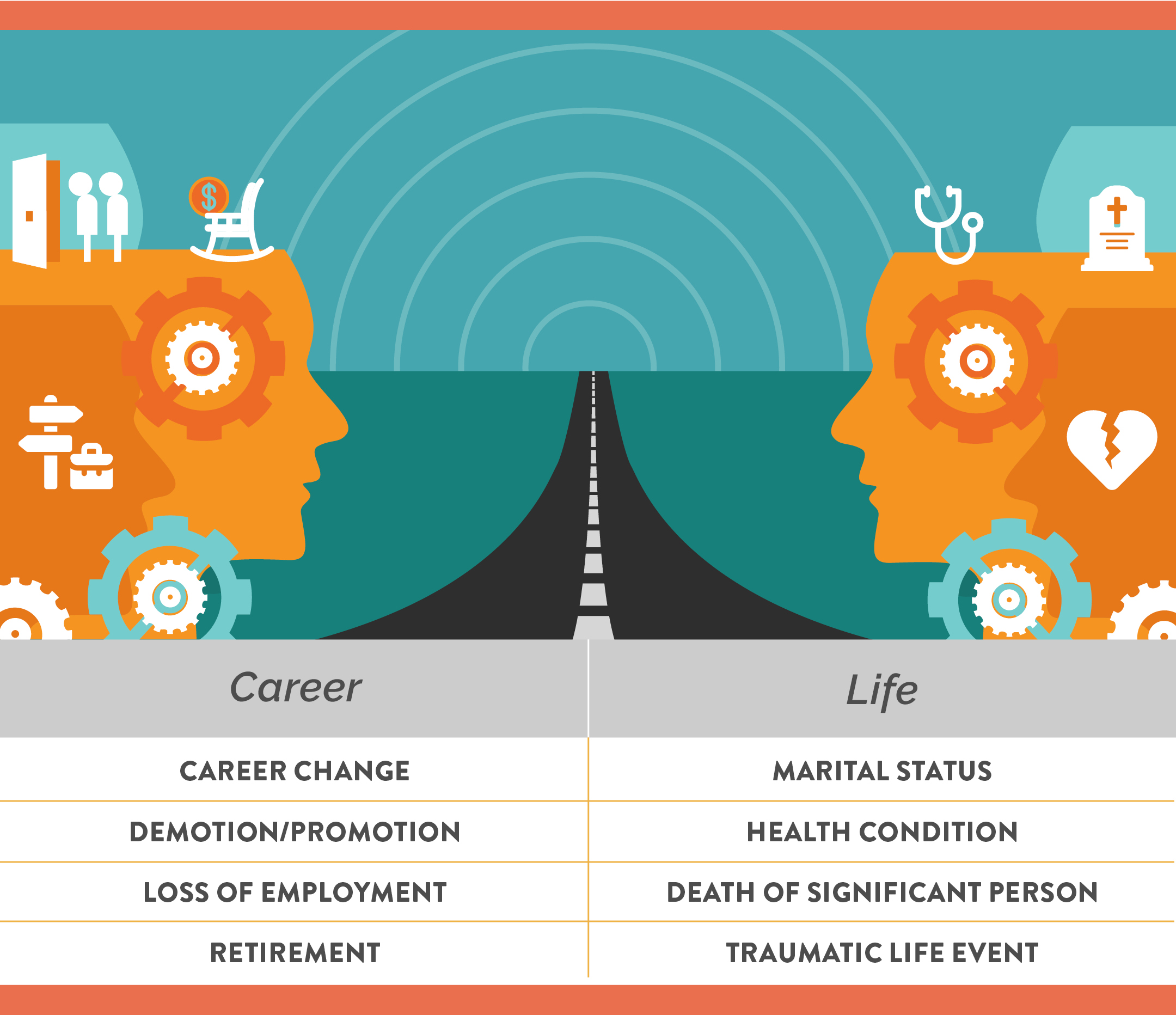
Make Positive Progress During Planned or Unplanned Transitions
Transitions are a fact of life. Some transitions are planned and self-initiated, like making a career shift, changing marital status, or moving to a new city. Others happen involuntarily and without much planning, such as dealing with a health crisis, facing the death of a loved one, or the loss of a job.
According to Bruce Feiler, author of Life Is in the Transitions: Mastering Change at Any Age, everyone goes through a disruptive event on average every 12 to 18 months. Transitions can shake our world and rock our lives.
Consider these examples of typical career and life transitions. They can be voluntary (those we initiate) or involuntary (those that happen to us).
Examples of Transitions

Five Considerations for Any Transition
1. Acknowledge Where You Are
No matter what the transition, it is likely full of emotions. It is important to be accurate and honest about your feelings and where you are starting from. Depending on the situation, you may want to seek help. Counseling, therapy, or coaching can help you work through the difficult and often complex emotions that can arise from significant life changes. This can be especially helpful when transitions are forced upon us. Being honest with yourself is a good place to start. The more real you can be about your emotions, the healthier the transition will be.
Life in Transition: The Right Help

When to See a Therapist or Counselor:
- Experiencing mental health crisis
- Significant anxiety, nervousness, depression, or grief
- Facing psychological trauma or personal distress

When to See a Coach:
- Feeling stuck or overwhelmed and desiring progress through planning and accountability
- Desiring a path forward in a positive and productive way
- Setting a positive example for others to follow, desiring personal growth
It is not uncommon to seek both a therapist and a coach to help navigate a transition in a healthy and productive manner.
2. Choose Your Lens: How Will You View Your Transition?
Transitions can be messy, scary, and at times paralyzing. They can come at inconvenient times and often bring complications that we are unprepared for, even when we initiate the change. Yet, they also can offer self-reflection and self-discovery. They set our lives on new trajectories to explore who we are and what we are made of. As terrifying as transitions may be, they also are filled with opportunities.
3. Set a Plan
Through transitions, we move forward by taking action, one step at a time. It is important to take it at your own pace. There are no comparisons and no one right way. For every transition, every journey is uniquely individual. But there should be a plan—a plan for forward movement. It is important to be intentional and to take actions that lead toward positive mental health and personal well-being.
4. Identify Checkpoints Along the Way
Perspective is critical and seeing personal progress along one’s own transition journey is key. Establish times to pause and see how far you have come to keep your positive momentum going.
5. Create Support
When going through a transition, support groups, ongoing counseling, or coaching can help. Encouragement is important and lets you see you have people on your side. When you are on the other side of a transition, consider how can you give back. People need your experience and your perspective. Giving back is a continual part of the journey.
How ithrive31 coaching can help through transitions
At ithrive31, we are certified professional coaches who support individuals going through career and life transitions. Our commitment is to walk beside our clients with compassion and nonjudgment as they navigate unchartered waters. We offer tools such as the Energy Leadership Index™ and COR.E Energy Transition Coaching™ to lay out a plan for success.

